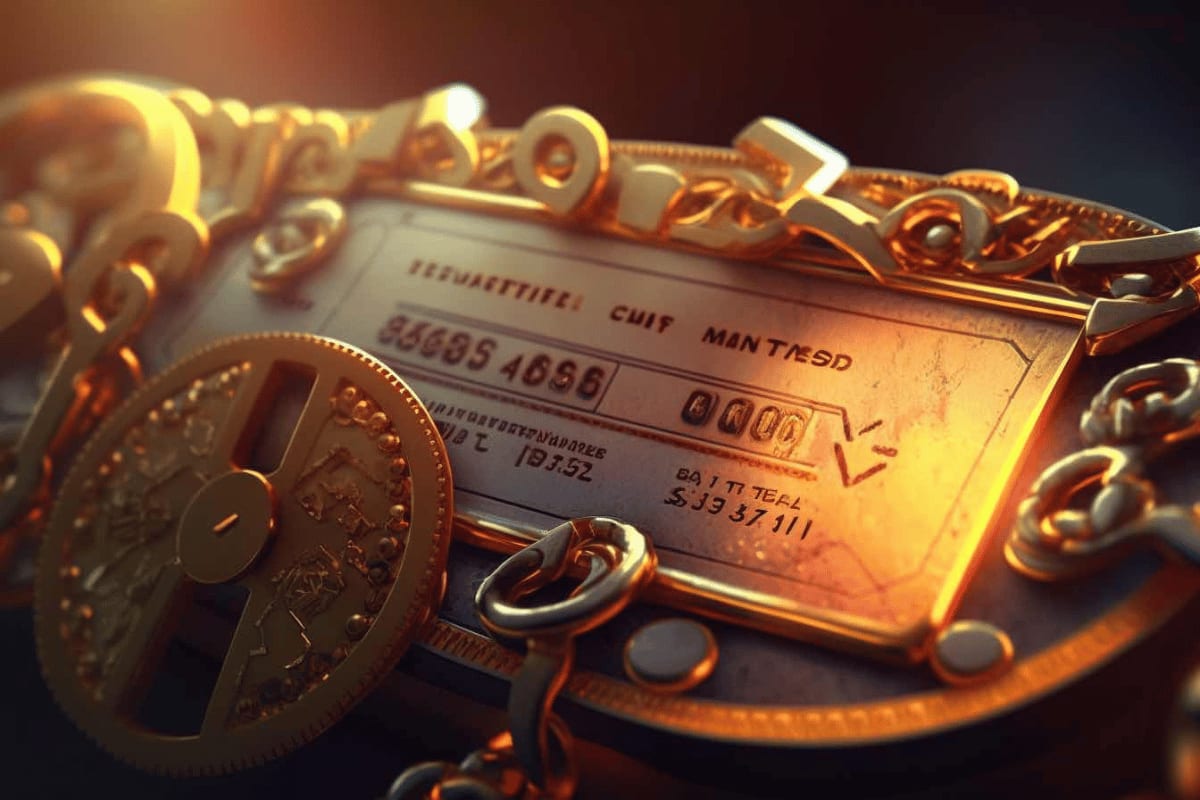March 4, 2023
The Future of NFTs: Five Use Cases to Watch in 2023
See five use-cases for NFTs that could see Web3 and digital ownership explode in 2023. From real-world ticketing to access tokens, NFTs show a lot of promise.

When discussing Non-Fungible Tokens (NFTs), many people immediately think of the infamous "pictures of apes" that have made headlines in recent years. While it is true that OpenSea's NFT collections saw a collective monthly trading volume of around $4.8 billion at the market's peak, NFTs have the potential to be used for so much more than just collecting links to images.
NFT holders can also benefit from owning membership NFTs that grant them special privileges, such as access to exclusive live events. The ticketing industry could also be completely revolutionized by the use of NFTs - imagine being a ticket holder to a live event and owning a unique NFT that verifies your ticket's authenticity!
This is made possible by blockchain technology, which ensures that each NFT is a one-of-a-kind, non-replicable digital asset. The possibilities for NFTs are endless, and it's exciting to think about how they will continue to shape the digital landscape in the years to come.
1. NFTs for Event Ticketing
Using NFTs for event ticketing allows organizers to mint the number of tickets they wish to sell and sell them directly to fans. The NFT tickets can even be configured to pass on a percentage of each sale to the organizers as a royalty.
NFTs reduce the risk of forgeries and mitigate the negative impacts of scalping. According to a report by CNBC, around 18% of people who buy concert tickets get scammed. Using NFTs in place of paper tickets would reduce the risk of this happening.
NFT-based ticketing can also offer several other advantages, such as a membership model that allows fans to access exclusive content and benefits, and the ability to easily transfer tickets to friends and family using QR codes. Additionally, NFT-based ticketing can help to create a more secure and transparent secondary market for tickets, where fans can easily buy and sell tickets at fair prices without fear of fraud or other issues.
2. Tracking Memberships with NFTs
Online flyfish clubs can utilize non-fungible tokens (NFTs) as a proof of nft membership, similar to how Axie Infinity uses NFTs for its digital collectibles. NFTs are unique digital assets stored on a blockchain, a decentralized digital ledger. By proving ownership of the NFT through their wallets, flyfish club members can access content that is only available to token holders.
This approach creates a sense of exclusivity for members and also allows the club to monetize its content. By selling NFTs to new members, the flyfish club can transfer ownership of the token and provide access to exclusive content. Furthermore, the value of the NFT may increase over time, making it a potentially valuable asset for its owner. This arrangement benefits both the flyfish club and its members.
3. Digital Ownership in NFT Gaming
By turning in-game assets, virtual land, and digital ticketing into NFTs, gamers and users can own their digital content across virtual worlds. This way, there's no fear of assets being stolen if a game account is hacked, or removed from the player's account if they're banned from the game or platform.
Players and users will always have their NFTs to look back on or use as proof of ownership. Game and platform companies could collaborate with each other, allowing someone who owns an NFT racing car in one game to receive a spaceship with a similar livery or similar bonuses in another game or platform.
NFTs can also be used for membership and loyalty programs, granting users access to exclusive content and features. NFTs can help players and users bring their digital life with them as they move around the metaverse and across different virtual worlds.
4. Supply Chain Tracking With NFTs
The global supply chain has witnessed significant technological innovation in recent years. One such innovation is the adoption of blockchain technology. Its use has improved tracking and transparency, facilitated more efficient payments, and encouraged ethical and sustainable sourcing practices. One of the latest innovations in this space is the use of NFTs, which make it easier to verify and track items along the supply chain, from raw materials to finished products.

Many blockchain companies, such as Koinearth, are investigating the use of NFTs to track physical goods as they move through the supply chain. This approach ensures that everyone involved in the supply chain, from insurers to shipping companies, manufacturers, and customers, can have confidence that the data has not been tampered with.
Apart from supply chain tracking, NFTs have found use in various other areas. For instance, Crypto Baristas NFT offers discounts on exclusive coffee brands and tickets to the annual New York Coffee Festival. NFTs have also been used to track cultural and social events hosted in different parts of the world.
Overall, the adoption of NFTs in different industries is expected to continue to increase, as they offer a new level of security and transparency that was previously not possible.
5. Certificates of Authenticity
Just as NFTs have a use in the enterprise world for tracking supply chains, they can be used by consumers too. NFTs can be supplied alongside fashionable items, or even authenticate cannabis varieties, to prove that the product is legitimate. This gives buyers peace of mind the product they're paying for is the label, or quality, they expect it to be.
Web3 and NFTs are still in their infancy, and there's a lot of exciting work being done across all areas of the marketplace. The barriers to adoption for virtual items such as digital subscriptions and in-game assets are lower, so those are the areas we'll most likely see the biggest changes in over the next year, but the possibilities are truly endless.